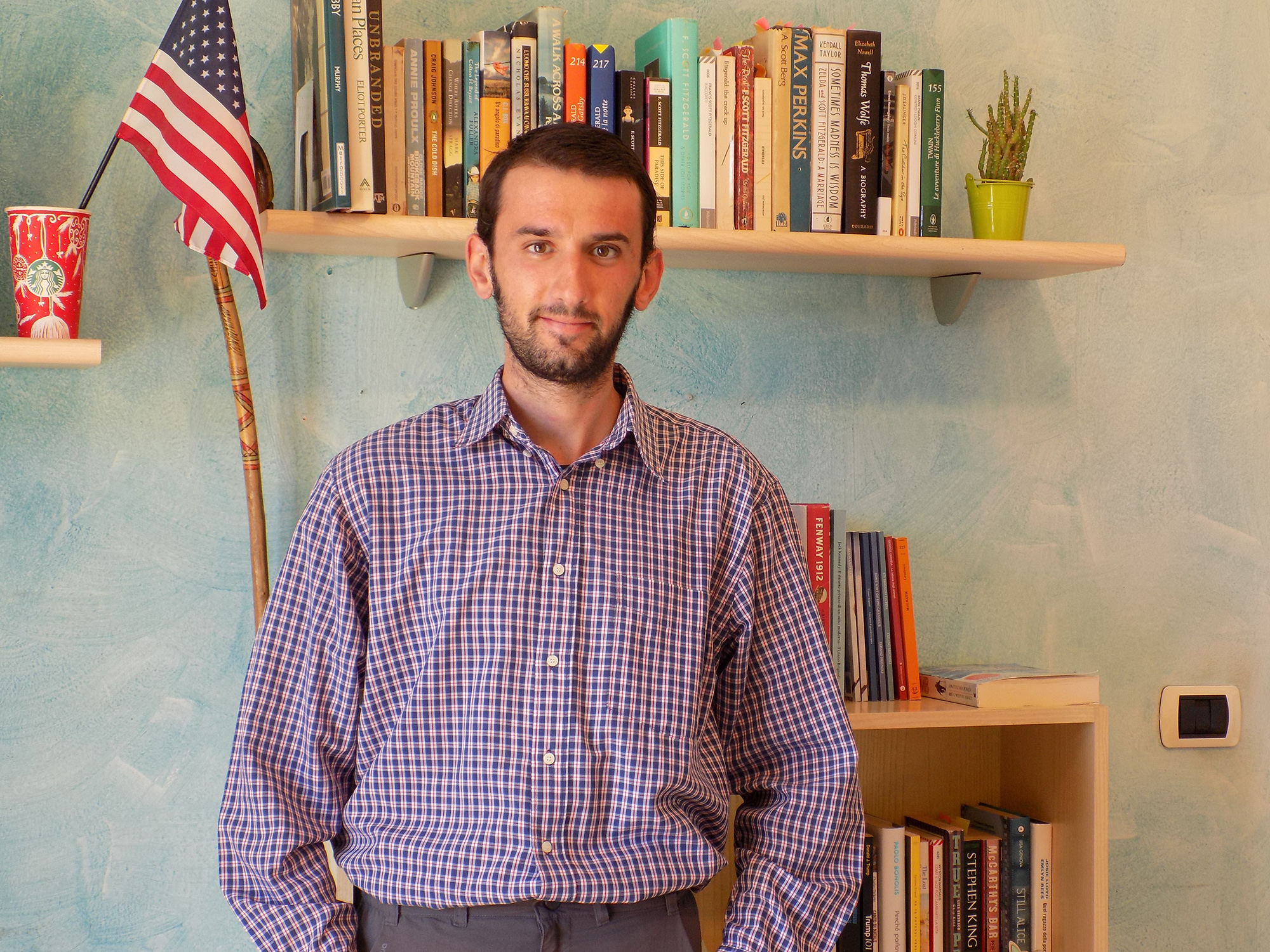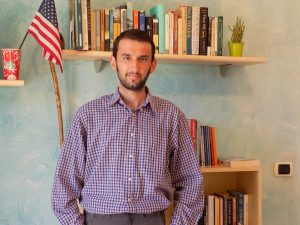Thinking back to my childhood, I believe that even back then there were obvious signs of what I insist on calling “a restless mind.”
I remember always being a very agitated child, in my head mostly, and this has persisted into adulthood. When I was a child, gradually more and more, I distanced myself from my schoolmates and childhood friends, even looking for imaginative ways to argue with them, getting closer and closer to the “friends” of my mind. I would talk to myself; or rather, I would create real dialogues with these imaginary friends, who I felt understood me better than anyone else in the real world. Not only did they understand me, they listened to me, and I had—and have—a desperate need to be heard. I realize today, however, that those imaginary dialogues were taking me further and further away from the real world, and plunging me further and further into the darkness of my own mind, making me day by day a little more isolated, a little more lonely and, as I grew older, a little more paranoid about the society in which I had already stopped living or being an active member.
My childhood was anything but easy or ordinary, indeed traumatic in many ways, such as when my little best friend suddenly died, or because I lived in a violent family. All this contributed to establish in me an incorrect order of things, an imaginary and completely unreal awareness of what I was, of what the world out there was, of how I could or wanted to live my life.
One day, when I was about eight years old, I was alone in my room, when I think I had my first episode of anxiety and obsessive thoughts, when I started thinking about death. I couldn’t push that thought away or silence it in my mind. It terrified me and commanded my state of mind. I was sweating, shaking, and gradually became more and more agitated, so much so that even though I was scared to ask this question, I went to my mom and asked her, “What will happen when you die?”
She, I think, tried to reassure me, telling me that she would always be watching over me, but in a way that veiled answer agitated me even more, even though I didn’t show it. I think this event was the beginning of what then became more and more constant delusional thoughts and psychosis about myself and the world.
In 2015, at the age of twenty-three, I was admitted to a psychiatric hospital and diagnosed with a psychotic disorder. At the time, I was absolutely convinced that I was a victim of the system, of the society that wanted to take away my rights. I was not sick! My brain certainly wasn’t – I insisted on telling myself. From that moment I started a pharmacological treatment that is used to cure various forms of psychosis, including Schizophrenia, which continues to this day. But I could not accept the fact that it could do me any good, nor was I still able to observe my life objectively, breaking down the pieces and looking at them separately and then reassembling them in a more coherent and orderly way.
Only today, six years later, have I come to the realization of my illness and the fictitious world in which for too long I took refuge—perhaps to distance myself from the pain I suffered in childhood. Perhaps the unreality in which I lived was built as a defense against pain. I continue to ask myself questions about this topic, and I believe it is a constant path to getting to know oneself better, and to dialogue with oneself and one’s illness.
However, this journey of acceptance has not come as a bolt from the blue, but rather has been a constant journey within myself that has been going on for about two years —and will need to continue into the future. A friend of mine, about a year ago, told me that I was in so much pain talking about this topic because for the first time in my life I was “really struggling with it.” So it has been a journey of assimilation, of rebuilding who I really am, of finding my identity, which still, however, is not complete.
The good thing is that I’m especially coming to the realization of the importance of my drug therapy, and how it, albeit slowly, has helped me to steer my thoughts in the right direction. Just as I’m discovering, one tiny step at a time, trust in my psychiatrist—something I never felt, but fundamental in any therapeutic and healing process.
The other day there was, I think, a pivotal moment in my journey of acceptance and dialogue with my illness. After I spoke briefly with a friend about the mental health issues that plague so many people—from anxiety to psychosis—I told her that I, too, was on medication, but when she asked me what they were, I didn’t have the courage to answer her. Although I was finding the confidence to speak publicly about my problems, I still lacked the ability to express myself freely, without shame. That changed a few days later, when I texted her the name of the medication, specifying that it was an anti-psychotic—something I had always been deeply ashamed of. But not anymore.
She herself replied, “It’s medication. Medication is needed sometimes. You are a beautiful person, you have nothing to be ashamed of.” I want to believe that those words gave me the ultimate courage to face the future with confidence and hope, without hiding or denying myself the truth. I therefore consider this my greatest victory: the understanding of my illness and having stopped being ashamed of it.
Tiziano Brignoli, 28-years-old, is an Italian writer, author of eight books on different genres. He is been diagnosed with psychotic disorder; an illness he has struggled to accept for many years, and right now he is finally freely writing and talking about it.
Facebook: tizianobrignoli
Twitter: @Brignoli_Author









Leave A Comment